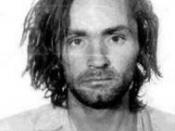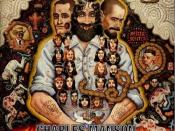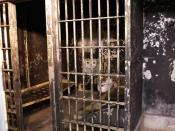Charles Manson and various members of his "family" brutally killed several people from the Tate and LaBianca family on two seperate ocassions. The purposes of these killings are misunderstood by today's society, when ignoring Manson's philosophy. Although Manson never killed anyone, he went to prison in 1969 for masterminding the operation. Today's society has labeled Charles Manson as a mass-murderer who had no purpose through his cause. However, society overlooks the goal of Manson's plan, which included creating a better society. Manson continues to preach his cause through repeated parole attempts, behind the walls of a California prison where he resides currently. His cause remains unknown to many, but several of Manson's underlying themes coincide with earlier transcendental views.
Many of Charles Manson's beliefs include creating a better society by reducing the size of the government, and preserving the role of an individual in society. This explains why Manson refused counsel at his trial, he represented himself until the judge found many of his motions "ludicrous" and appointed him an attorney.
Manson preached that only he could represent himself, because no one could preserve his individuality. Mr. Manson lost his sixth amendment right to self-representation, and he uses this example now to prove that the individual rights of people are controlled and manipulated by the government.
The story of the "Manson Family" goes beyond the Tate/LaBianca murders, to years before the murders took place. Manson and his "family" would gather together in a house, when generally they would sit contently and listen to Charles preach. Usually the sermon would last for an hour or two and include stories and prophecies about the "revolution" that Manson felt was coming. Manson called this revolution helter skelter, after a Beatles song, which he felt told about the future of our society.


